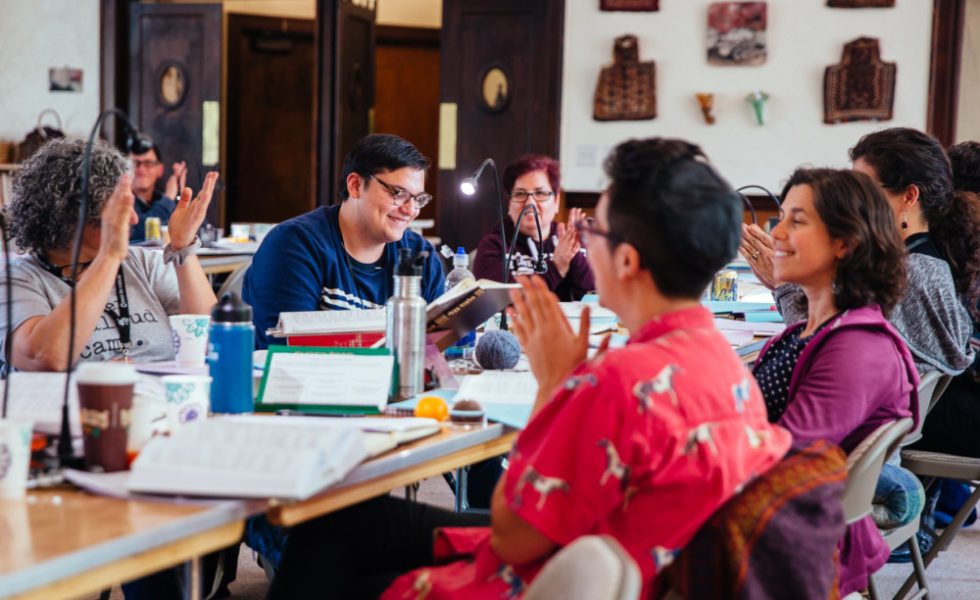Our Approach
Since 2003, SVARA has been a place where those who once felt like outsiders become insiders for the first time. To learn in our bet midrash is to realize that we are not just going to be allowed to sit at the table of Jewish learning and decision-making, but that it is essential that we be there.
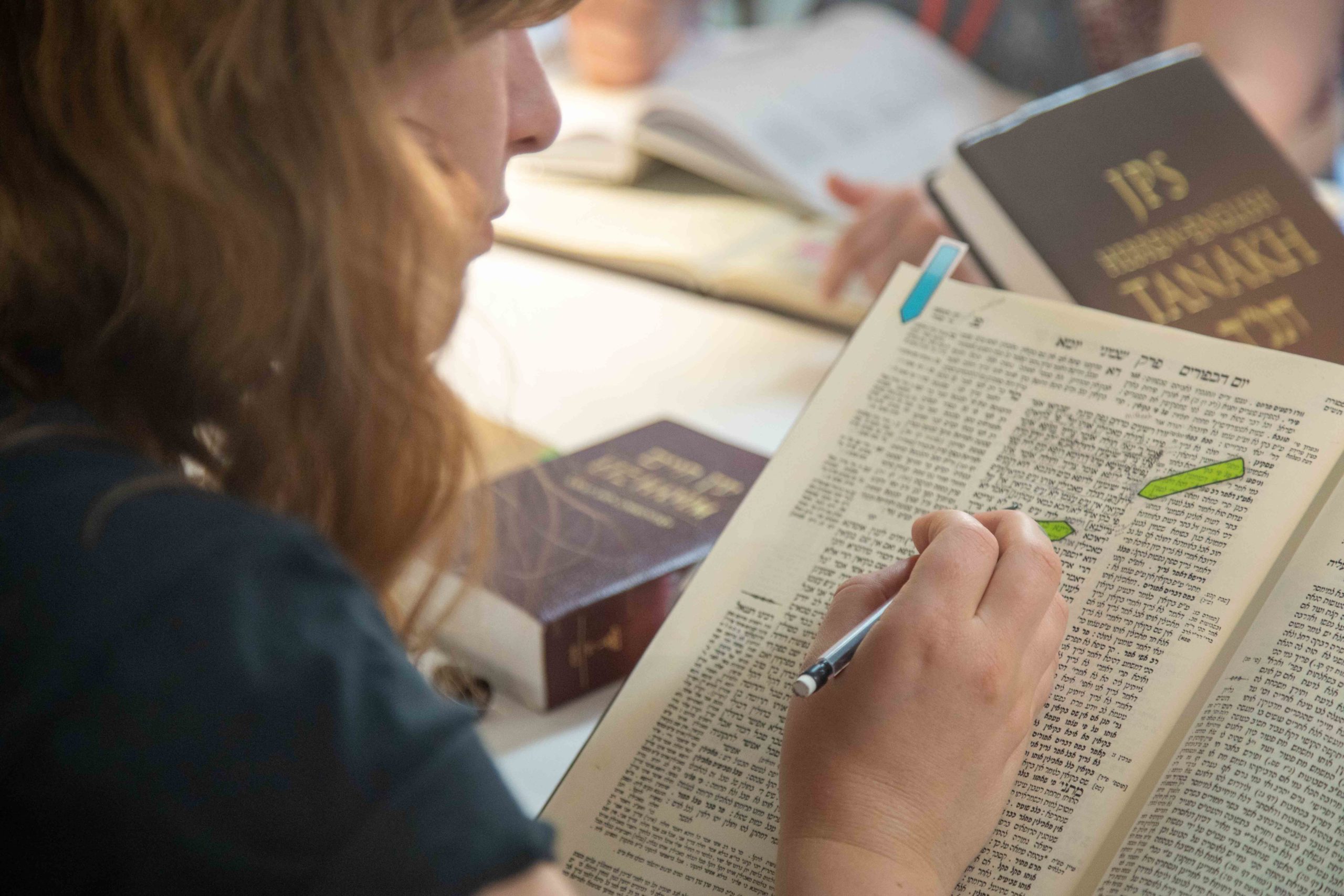
Why Talmud?
SVARA is a traditionally radical yeshiva dedicated to the serious study of Talmud through the lens of queer experiences.
SVARA’s unique pedagogy makes Talmud study in the original accessible—for the first time in Jewish history—to all who want to learn, including those who have just learned their alef-bet. At SVARA, everyone—queer, straight, trans, cis, alef-bet beginners, experienced talmudists, secular, religious, Jews, non-Jews—everyone learns together in a mixed-level bet midrash that recognizes as crucial the insights of all those on the margins.
At SVARA, we see Talmud study as a spiritual practice for developing radically empathic, mature, evolved human beings who will create a more just, peaceful, and healthy world. We believe that radically courageous, compassion-driven change is native to the tradition, that the Talmud is a handbook for how to do that, and that the study of it also shapes us into the kinds of people equipped to do it.
Talmud for the 99%
SVARA seeks to bring serious, rigorous, traditionally radical Talmud study to a queer, outsider audience, and, ultimately, to change the way Talmud is learned and taught in the world, to everybody.
We create a space in which people historically excluded from the tradition can engage in intimate and intense conversation with it—and each other. By facilitating a space where everybody can learn the texts that have shaped Judaism for the past 2,000 years, we believe that we will create players in shaping the next chapter of Judaism, and our society as a whole. As more and more individuals gain knowledge of how Judaism works, especially those who have been excluded from Jewish learning in the past, we will be able to build a stronger, more empathic, better Judaism for the future, and a more peaceful and just world.
For almost two millennia, the Talmud’s intellectual, moral, and spiritual tools have been available to just 1% of the Jewish population. SVARA exists to bring it to the other 99%—and beyond.
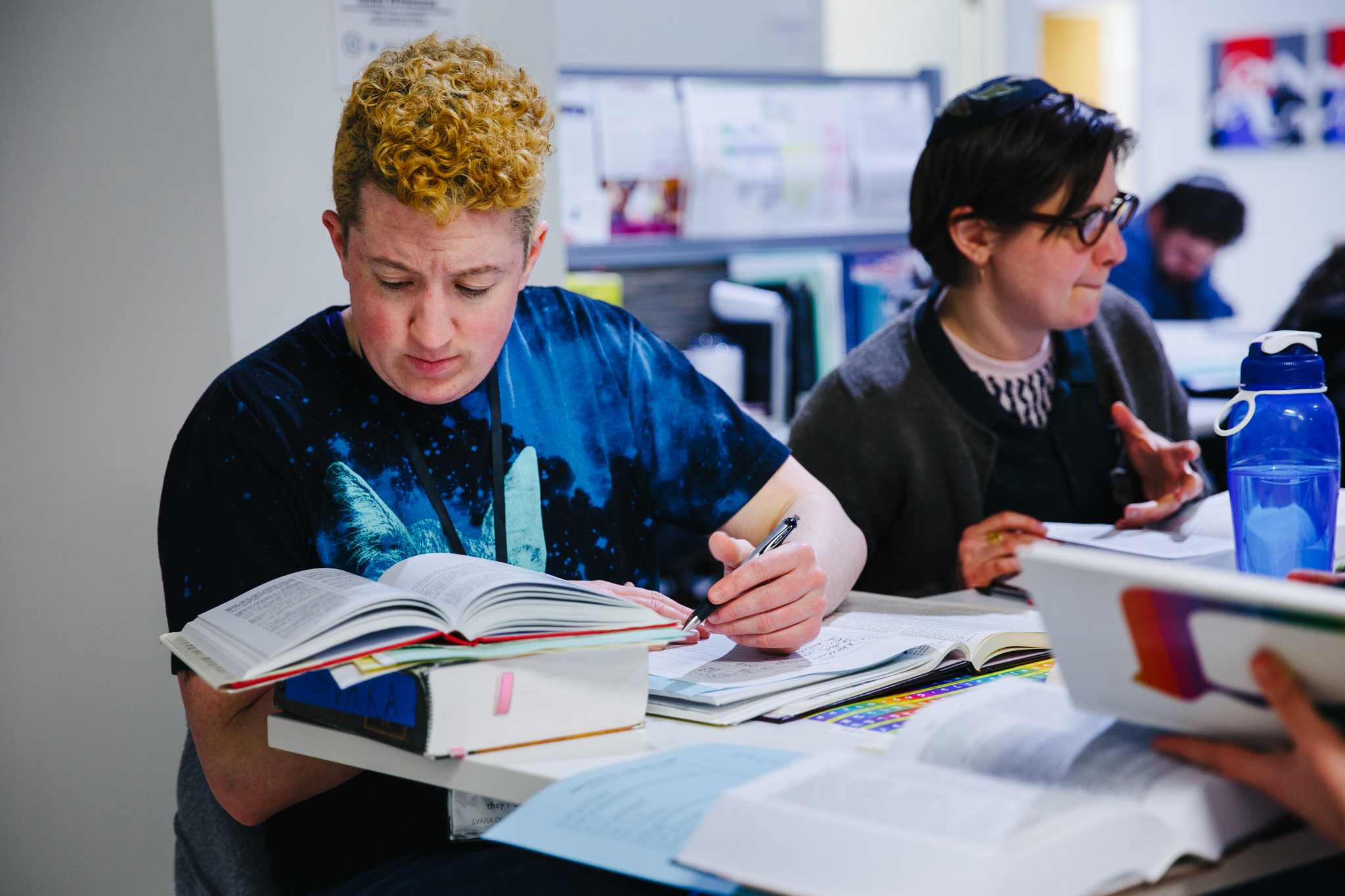
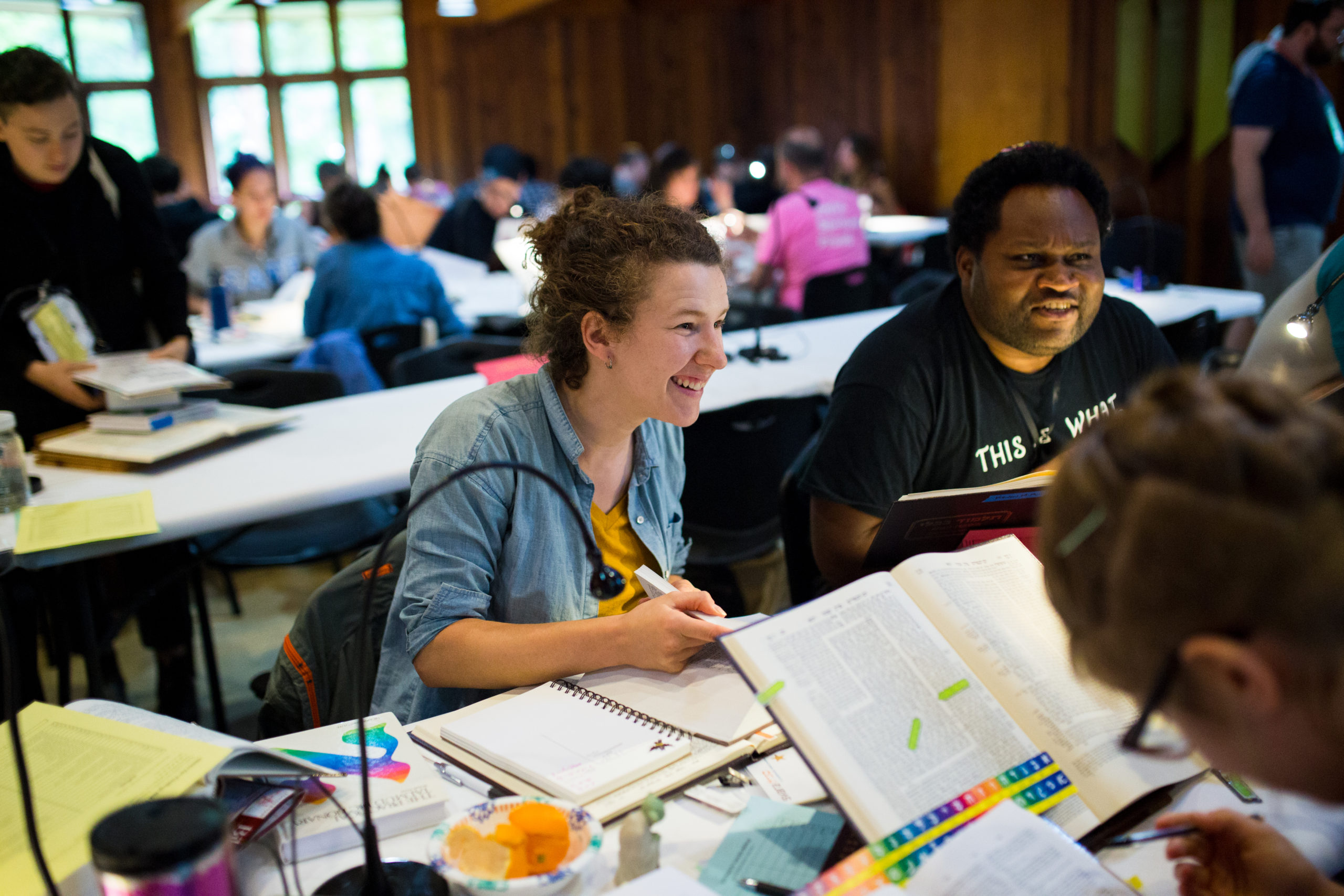
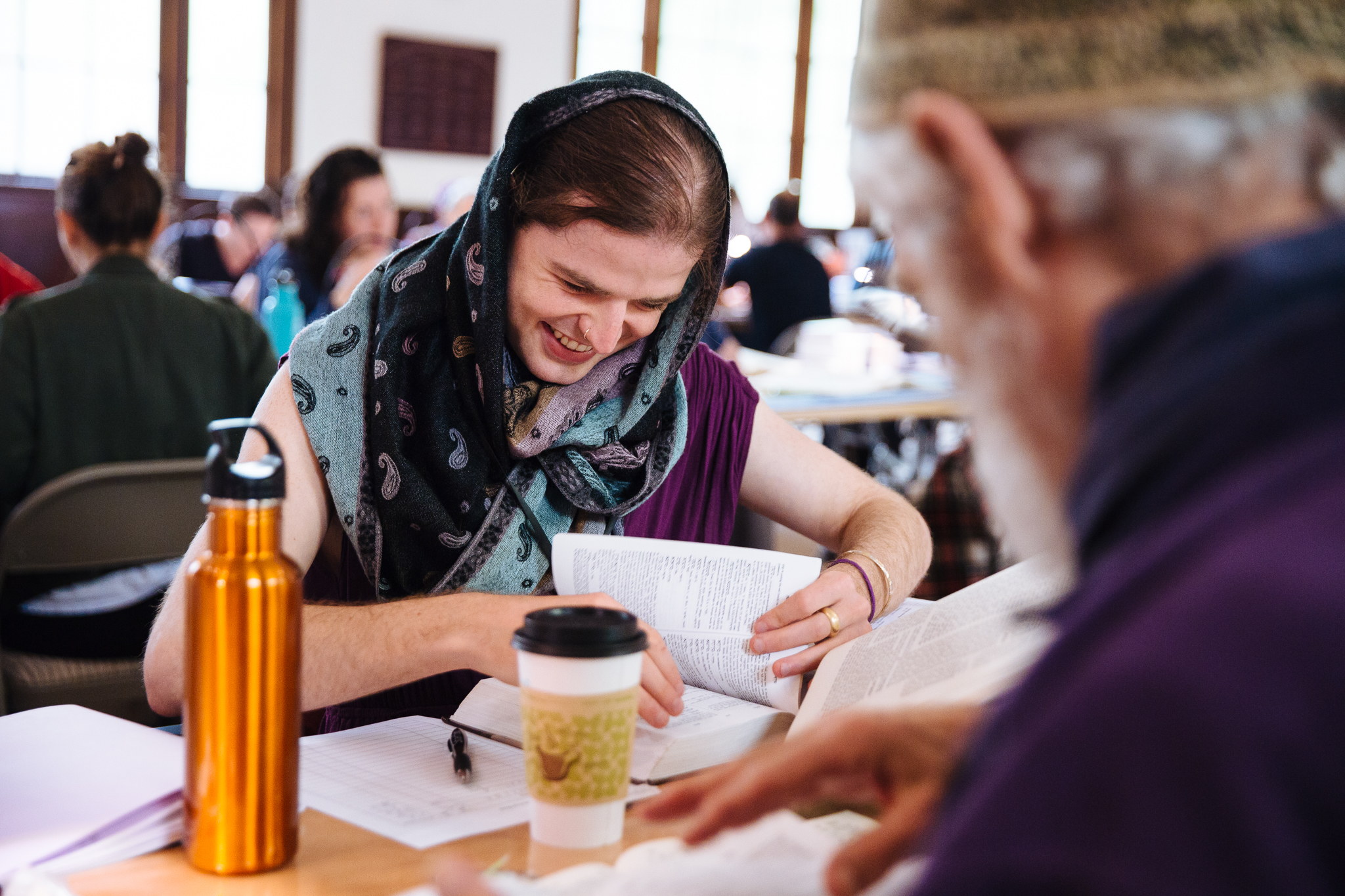
Our Community
SVARA engages an intersectional cohort of learners across age, gender, sexuality, race, and ability. We’re creating an intergenerational community of learners whose ages span eight decades, accessible to folks with a diversity of foundational knowledge.
What Happens in the Bet Midrash
When we come together in the bet midrash, our learning follows a regular flow:
What is chevruta?
- A framework for intimate connection with another human being, with the text, and with the tradition. Chevruta is the partnership as well as the people in the partnership! For example, you study in chevruta – with a partner – and you have a chevruta – a partner!)
- A spiritual technology for developing radical empathy and interdependence
- Interactive, engaging, busy, immersive, with both chevrutas feeling totally present to the relationship and the learning
- When done with rigorous and clear expectations of text mastery, chevruta becomes a profoundly meditative and empowering experience.

What is shiur?
- The group discussion section during which the text is unpacked, word by word
- Careful attention is paid not only to what each word means but how each word means what it means
- Larger ideas and implications of the text are also explored in a freewheeling discussion
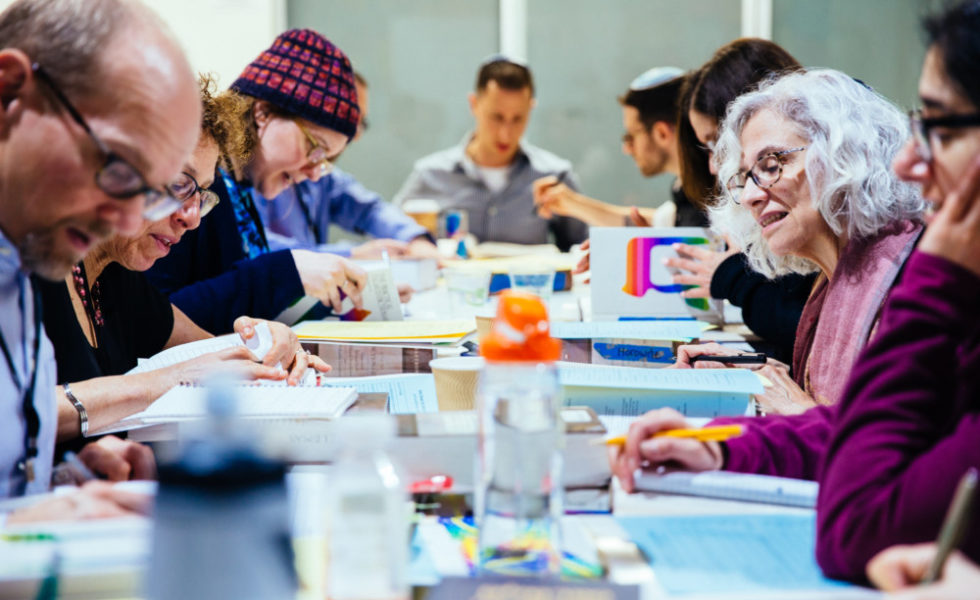
What is chazara?
- The process of reviewing a text, in chevruta, to complete understanding and deep ownership
- A diagnostic process designed to help you understand what you thought you understood but really don’t, and where your gaps in understanding are
- The process of you becoming the text

What is recitation?
- Sharing, out loud, the text you’ve come to own—in the original, in perfect rendition of the original but voiced through you
- The last step of the chazara process
- The first thing that happens in each shiur before the new material is unpacked
